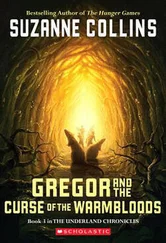Although Gala’s traditional rivals had always been Hawick, it was Melrose – just four miles away – who had emerged as the team we most desperately wanted to beat. Melrose set the benchmark in Scottish club rugby, and would go on to repeat the feats of Hawick who had dominated the championship in the Seventies and early Eighties. Well marshalled by their inspirational coach Jim Telfer, they were aggressive and relentless up front and had halfbacks who knew how to control a game. One of those half-backs was Scotland standoff Craig Chalmers, who had played for the Lions and won a Grand Slam in the previous eighteen months. I was due to face him on his home turf in only my second game for Gala.
Against the odds, we defeated the reigning champions 19–15 in a game that was much more open than it had been at Stirling. I had a pretty mixed game, making some good breaks but also missing tackles and struggling with my restarts. I once read in a coaching manual that the biggest room in the house was the room for improvement and that definitely applied to my game – I knew I had many things to work on. That was why I had already decided I would return to play for the school team the following weekend. I thought it would be a better way to work on my basic skills, as well as offering a chance to finally win the Scottish Cup after two Final defeats in a row.
Later, some said that my return to schoolboy rugby had been bad for my game. They said that as I had continued to dominate games bad habits had developed. For years I would have argued with this sentiment. I worked very hard on my kicking and passing under the expert eye of Rob Moffat, often spending lunch hours during the week out on the pitch. I also achieved my goal of captaining the Scottish Schools team and leading Gala Academy – finally – to a Scottish Cup success. However, my form a year later, when I became established in the Gala side, was not as good as I expected. Part of the reason was a frustration borne from being unable to find holes as easily as I had done at Under-18 level. Throughout my career I have always felt my game has improved every time I’ve had to make a step-up to a better standard of rugby, but it wasn’t immediately obvious that I had made real progress in my first season of senior rugby. Although my last season at school was very enjoyable, maybe I should have decided to stay with Gala after the win at Melrose.
Near the end of the season, I managed to play the odd game for the club and made it into the side for the 100th Gala Sevens, which attracted international teams such as Canada and Fiji. Despite incessant rain, thousands turned out at Netherdale and they were treated to a wonderful exhibition of sevens rugby from the South Sea Islanders. The annual sevens season in the Borders is the region’s rugby heartbeat, and the five spring tournaments are still an established part of Borders life. The abbreviated form of the game was the brainchild of Ned Haig, a butcher from Melrose, where the first ever sevens tournament took place in 1883. Melrose Sevens today draws crowds of up to 15,000 and it was a pity and a mistake that the SRU did not give the town the right to host the Scotland leg of the IRB Sevens circuit.
The 1991/92 season – my first full season with Gala – was delayed because of the Rugby World Cup. This coincided with my first weeks at Edinburgh University where I’d enrolled to study history and politics. The season started well as we got our revenge on Stirling, winning 31–9. I made a break that led to a try and featured Kenny Logan falling for an outrageous dummy that was shown on the BBC’s Rugby Special as part of their intro for the next few years, much to Kenny’s irritation. Gala were undefeated going into December as we prepared for the biggest game of the season, at home to Melrose. This was one of two matches in a month that got me a reputation for being brilliant one minute, lousy the next.
It was a bitterly cold day and the pitch was barely playable from an overnight frost. This hadn’t deterred 5,000 supporters turning up at Netherdale. Melrose made a dream start to the contest, galloping away to a 28–3 lead after only twenty minutes. Apart from a try from their hooker Steve Scott, the other three Melrose scores all came from mistakes by yours truly. I learned some harsh lessons as a bout of nervousness led to two fumbles and a loose pass. A paralysing feeling had enveloped me but I came back to score a cracking try late in the first half. We lost 28–16 and, although I was devastated by the start I had made, I knew that once I had recovered my composure I had played really well. James Joyce once remarked that mistakes are the portals of discovery – I discovered that day that temperament is a key factor in achieving sporting success.
I thought that the Melrose game might have dampened down the expectations that had been building up around my play, but less than two weeks later and after only three months of senior rugby, I was selected to play for Scotland ‘B’ against Ireland. At eighteen years old, I was set to become the youngest ever B cap. I spent a week giving press interviews and being photographed for the Scottish papers. I remember one dodgy photo I had to have taken with my dad, which for some strange reason involved us both cleaning my golf clubs.
An article appeared in the Daily Telegraph that had the headline ‘Scot set to rival Barry John’. It quoted John Jeffrey as saying I was Scotland’s ‘outstanding hope for the future’. The Telegraph had even managed to get in touch with Barry John himself: ‘I have only seen him on video and heard rumours. Although I wouldn’t want to burden the boy with unnecessary expectations, there is clearly no limit to what he might achieve.’ While flattering, I found it daft and I believed that it was both a reflection of the state of the game (which at the time was dominated by kicking) as well as a lack of rugby stories since the end of the World Cup.
It was nice to hear illustrious people say such things, but all I wanted to do was play and improve – expectations weren’t in my control. There’s a quote from Henry Ford that you can’t build a reputation on what you are going to do. I wanted to be judged on how I was performing in the present, not on whatever potential I had. All I could do was remind people that I hadn’t done anything to justify this talk, remind them of my mistakes; and together with the media I helped build up my image of being ‘prone to errors’. The irony is that I spent the last few years of my career trying to tell them I wasn’t prone to errors after all.
For the B international we stayed in Edinburgh’s opulent Balmoral Hotel, which was in a different world to the room I had been given that year in the university halls of residence in the same city. My room was G1 – something I wouldn’t forget in a hurry. G1 meant the first room on the ground floor, situated next to the main entrance of the halls. This frequently meant I’d get a restless sleep as drunken students arrived back at various times through the night talking loudly or singing. This wasn’t as bad, though, as the times I would hear a knock on my window, followed by the request, ‘Could you open the main door? Sorry, I’ve forgotten my key.’ It drove me mad. I lapped up the luxury of the Balmoral and felt that this was a much better way to prepare for a game.
A few of the Scotland team were congregating in the hotel lobby as I wandered about after dinner.
‘Toony, you want to come for a walk along Princes Street with us? It’s a tradition the night before a big match, and it’ll help you sleep later.’
One of the others suppressed a laugh at this, but I couldn’t see what the joke was. I agreed to join them for a leisurely walk. We were a group of around half-a-dozen, all from the Borders, which was comforting to me – not just the fact that I knew the other players, but in that I presumed that Borders rugby guys would know how to best prepare for a match.
Читать дальше












